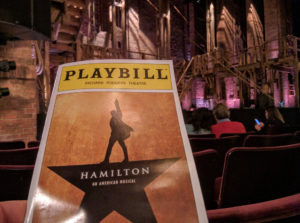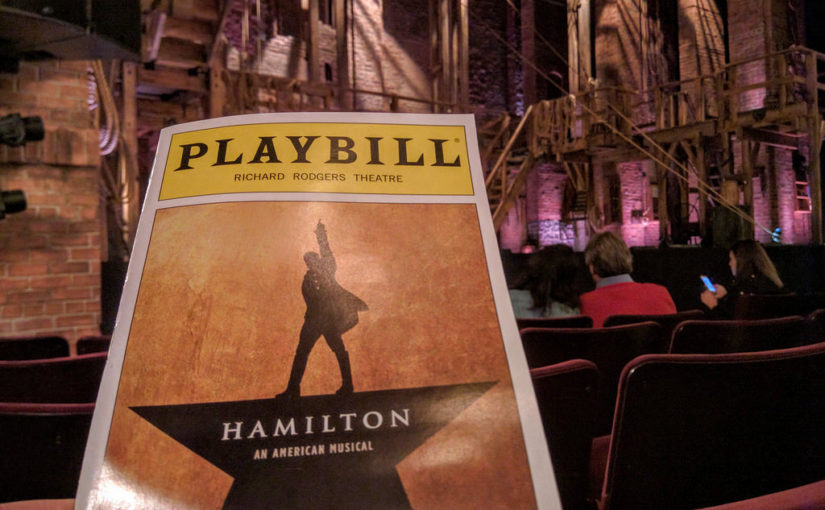
As college students, we enjoy watching documentaries just as much as we love to read textbooks right before bed. Which is to say, not at all.
So when I say I cried during “Hamilton’s America,” a documentary surrounding the inception, creation and development of the Broadway musical “Hamilton,” you’ll probably just stop reading and chalk me up to that weird girl who writes for the paper and has very strong emotions about the Founding Fathers. And you’d be right.
But “Hamilton’s America” made me bawl like a baby, not just because it’s creator, Lin-Manuel Miranda, is a very precious individual, but also because it gave important insight into art and its importance in sustaining a legacy.
Legacy. What is a legacy? When Alexander Hamilton died, he probably wasn’t thinking someday there would be a musical about his life. He was probably even less convinced it would be successful, or it would break musical and artistic boundaries.
Even Ron Chernow, author of “Hamilton” the biography, wasn’t expecting Lin-Manuel Miranda to approach him about writing a musical about Hamilton’s life. It isn’t exactly a medium many consider when they think about history. But when you consider “Les Miserables,” “Evita” or “Bloody, Bloody Andrew Jackson” (which Theatre NDSU performed last year), stage interpretations of historical events are successful. They are popular. They are entertaining.
Why? At the heart of theater productions is a need to connect with the audience. The actors on stage try to relate their character’s particular woes to the people watching from their seats. Not all of us are immigrants from a foreign country, thrown into the beginnings of a revolution who become Secretary of Treasury for an infant nation, but somehow, when “Who Lives, Who Dies, Who Tells Your Story” plays, we’re sobbing.
It’s not the actual experiences of the characters we watch we relate to, it’s their personal emotions. Hamilton is worried his voice will never matter in the world. Burr is concerned he can never live up to the expectations others have placed before him. Eliza must grapple with the flaws of someone she loves, and whether that will keep her from loving him.
This is what we relate to. These conflictions, these thoughts, these staring-at-the-ceiling-at-one-a.m. contemplations. These are immortal.
And we all can relate to the pressing question of whether we will be remembered. Will we leave a lasting mark on this world?
“How much time do we get on this earth? We don’t know. They don’t tell us at the outset how much time we get,” Miranda said. “It’s something I’ve been sort of grappling with and terrified with. I think we all grapple with it. I think we all grapple with the paradox of knowing tomorrow’s not promised, but making plans anyway.”
This is the real reason I cried during “Hamilton’s America.” Not because seeing behind the scenes footage was extraordinary or because one of my favorite people ever was a star with a purpose. It was because I could connect with Hamilton, 212 years after his death. I was able to understand I was not the only one on this earth who grappled with the fact that some day, no one is going to remember who I am. Being placed in an artform, I experienced another person’s life.
Obviously, as the arts and entertainment editor, the arts play a huge role in my life. I am deeply affected by it in every corner of my day. But that doesn’t remove its value from others, including yourself. If you feel less alone in this world because someone singing on stage reminds you that you’re not the only one feeling what you’re feeling, that’s worth celebrating. And that is why “Hamilton,” and other musicals, are important.
